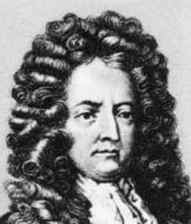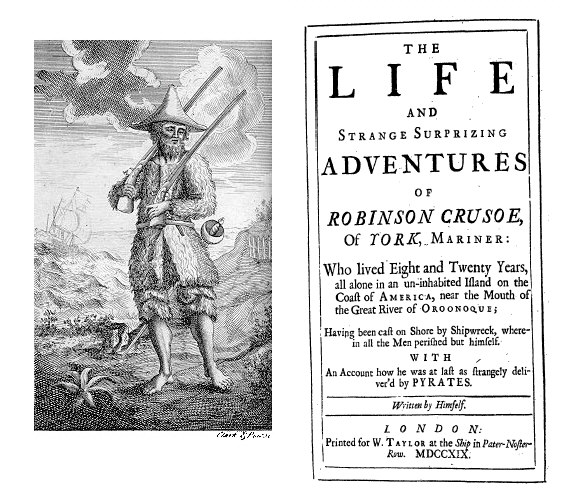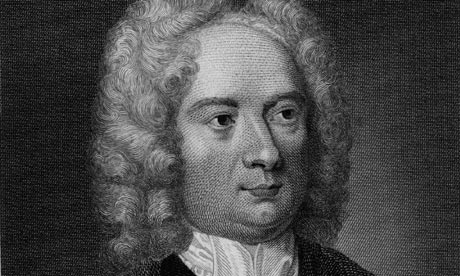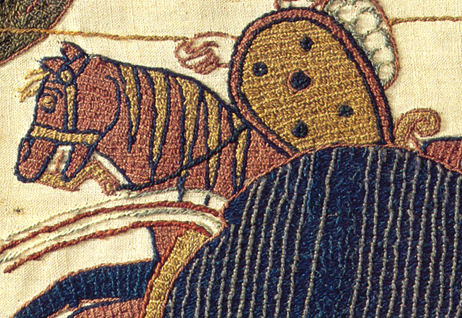A group of pilgrims are travelling together for five days from London to Canterbury. On the way, each pilgrim has to tell a story. Some stories are happy, and some are sad. But they all have a message, and we can learn from them.
The writer of these tales, Geoffrey Chaucer, was born in London in about 1342. We don't know exactly when he was born. His father, John, and his grandfather, Robert, worked in the wone business. They probably also worked for King Edward III. The family earned quite a lot of money and had a comfortable life.
When he was a young boy, Chaucer went to school in London. He then worked for an important lady in the king's family. It was a very good job and he met some very interesting people.
In 1359 Chaucer was sent abroad as a soldier. He was fighting for the king against France in part of the Hundred Years' War. He was taken prisioner by the French near Rheims, but after a year the king paid money for his return.
When he returned to England, Chaucer worked for the king, his family and friends. In about 1367 he married Philippa de Roet, a lady who worked for the queen.
Chaucer was a great reader and he had an excellent memory. He learned to read in Laton, French, Anglo-Norman and Italian. He knew a lot about literature, history and science.
The king often sent him to other countries on important business for him. On two of these journeys Chaucer went to Italy; first to Genoa, in 1372, and then to Milan, in 1378. People think that Chaucer became interested in Italian story-tellers on these journeys. He probably met the Italian writer, Boccaccio, when he was in Italy. We can be sure that he read Boccaccio's book, the
Decameron.
Chaucer became a rich man during this time, but in December 1368, he lost his job. John of Gaunt, the king's son and Chaucer's friend, left England to fight in Spain. The Duke of Gloucester took his place and he didn't like Chaucer. He gave Chaucer's job to his fiends. So Chaucer had more time for writing, and he began work on
The Canterbury Tales.
In 1389 John of Gaunt returned to England and gave Chaucer an important job again. Chaucer was growing old. He felt that his writing was getting worse. He died on 25 October, 1400, and his body was put in Westminster Abbey.
Chaucer wroked on
The Canterbury Tales from 1386 or 1387, but he never finished the book. In 1477 Caxton made the first machine which could print in England. He printed the book in 1478.
The Canterbury Tales was not the first book of short stories. Cahucer's idea - a group of people who each tell a story - wasn't a new idea either. In Boccaccio's
Decameron, ten people escape to the country from a terrible illness in Florence. Each person tells a story to pass the time.

In
The Canterbury Tales, the story-tellers are pilgrims. Their stories are interesting, but the pilgrims also seem very real to us. We feel we know them personally by the end of their stories. They are ordinary people - rich and poor, intelligent and stupid, young and old, from the town and from the country. They don't do the same jobs as we do today. But we all know people like them. The pilgrims' stories help us to undestand English life in Chaucers' time.
The pilgrims' stories are all completely different, and they come from all over Europe. Some of the stories even come from countries in the East. At that time, people in Europe loved stories which taught then something - stories with a message about life or a new idea.
The stories in
The Canterbury Tales are told like poems, and they are written in Chaucers' English.











.jpg)













